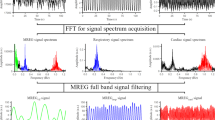Abstract
Lipocalin-type prostaglandin D synthase (L-PGDS) is a brain enzyme, which produces prostaglandin D2, a substance with endogenous somnogenic effects. Using a standardized protocol for immunonephelometric determination of cerebrospinal fluid (CSF) L-PGDS levels, we show that CSF L-PGDS levels are significantly lower in 34 patients with excessive daytime sleepiness when compared with levels in 22 healthy controls. Thus, L-PGDS may represent the first neurochemical measure of excessive daytime sleepiness.

Similar content being viewed by others
References
Nishino N, Ripley B, Overeem S, Lammers GJ, Mignot E (2000) Hypocretin (orexin) deficiency in human narcolepsy. Lancet 355:39–40
Mignot E, Lammers GJ, Ripley B, Okun M, Nevsimalova S, Overeem S, Vankova J, Black J, Harsh J, Bassetti CL, Schrader H, Nishino S (2002) The role of cerebrospinal fluid hypocretin measurement in the diagnosis of narcolepsy and other hypersomnias. Arch Neurol 59:1553–62
Dauvilliers Y, Baumann CR, Maly F, Torchon F, Bassetti CL (2003) CSF hypocretin-1 levels in narcolepsy, Kleine-Levin syndrome and other hypersomnia and neurological conditions. J Neurol Neurosurg Psychiatry 74:1667–73
Urade Y, Hayaishi O (2000) Biochemical, structural, genetic, physiological, and pathophysiological features of lipocalin-type prostaglandine D synthase. Biochimica Biophysica Acta 1482:259–71
Jordan WD, Tumani H, Cohrs S, et al (2004) Prostaglandin D synthase (beta-trace) in healthy human sleep. Sleep 27:867–74
Pentreath VW, Rees K, Owolabi OA, Philip KA, Doua F (1990) The somnogenic T lymphocyte suppressor prostaglandin D2 is selectively elevated in cerebrospinal fluid of advanced sleeping sickness patients. Trans R Soc Trop Med Hyg 84:795–9
American Academy of Sleep Medicine. 2001 International Classification of Sleep Disorders: Diagnostic and Coding Manual, Revised. American Sleep Academy of Sleep Medicine, Rochester, Minn
Tumani H, Reiber H, Nau R, Prange HW, Kauffmann K, Mader M, Felgenhauer K (1998) Beta-trace protein concentration in cerebrospinal fluid is decreased in patients with bacterial meningitis. Neurosci Lett 242:5–8
Baumann CR, Dauvilliers Y, Mignot E, Bassetti CL (2004) Normal CSF hypocretin-1 (orexin A) levels in dementia with Lewy bodies associated with excessive daytime sleepiness. Eur Neurol 52:73–6
Tibbling G, Link H, Öhman (1977) Principles of albumin and IgG analyses in neurological disorders. I. Establishment of reference values. Scand J Clin Lab Invest 37:385–90
Jordan W, Tumani H, Cohrs S, Rodenbeck A, Ruther E, Bechthold J, Mayer G (2005) Narcolepsy Increased L-PGDS (beta-trace) levels correlate with excessive daytime sleepiness but not with cataplexy. J Neurol [Epub ahead of print]
McArthur J, Hill J, Paech MJ, Dodd PH, Bennett EJ, Holden J (2005) Cerebrospinal fluid and serum concentrations of beta-trace protein during pregnancy. Anaesthesia 60:163–7
Tumani H, Nau R, Felgenhauer K (1998) Beta-trace protein in cerebrospinal fluid: a blood-CSF barrier-related evaluation in neurological diseases. Ann Neurol 44:882–9
Hayaishi O (2002) Molecular genetic studies on sleep-wake regulation, with special emphasis on the prostaglandin D2 system. J Appl Physiol 92:863–8
Grivel J, Cvetkovic V, Bayer L, et al (2005) Wake-promoting hypocretin/orexin neurons change their response to noradrenaline after sleep deprivation. J Neurosci 25:4127–30
Author information
Authors and Affiliations
Corresponding author
Rights and permissions
About this article
Cite this article
Bassetti, C.L., Hersberger, M. & Baumann, C.R. CSF prostaglandin D synthase is reduced in excessive daytime sleepiness. J Neurol 253, 1030–1033 (2006). https://doi.org/10.1007/s00415-006-0153-8
Received:
Revised:
Accepted:
Published:
Issue Date:
DOI: https://doi.org/10.1007/s00415-006-0153-8




